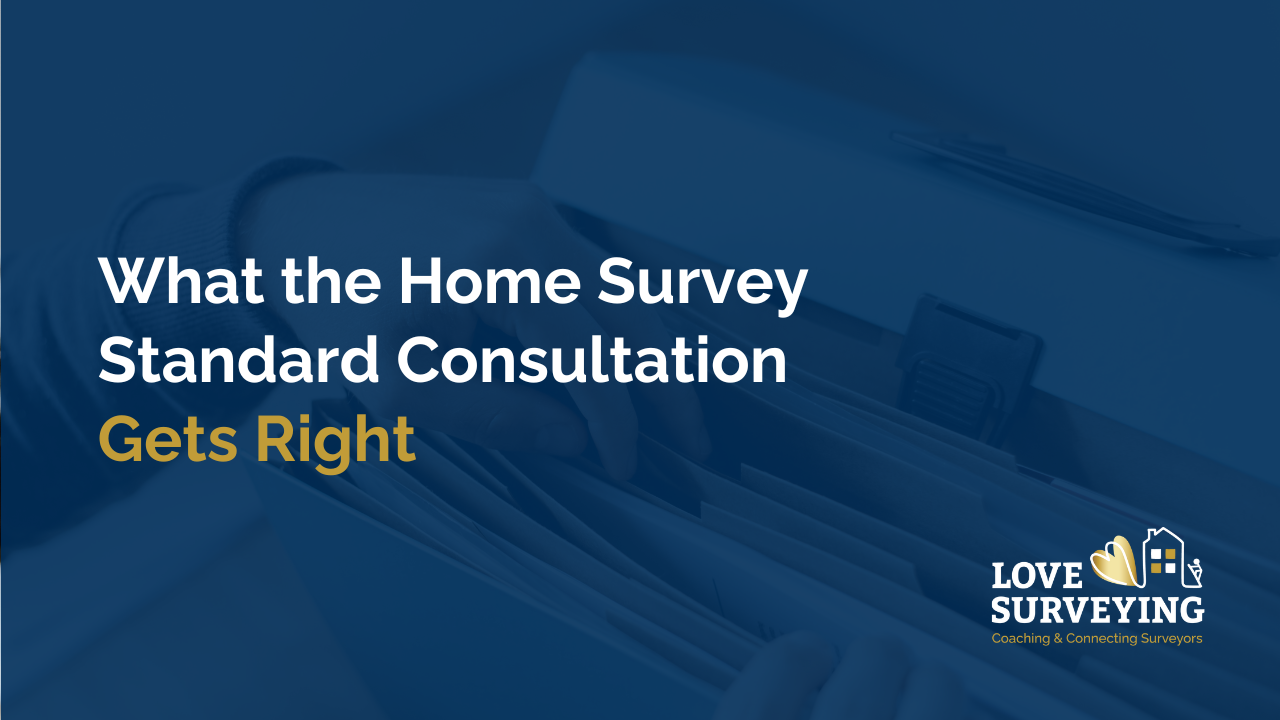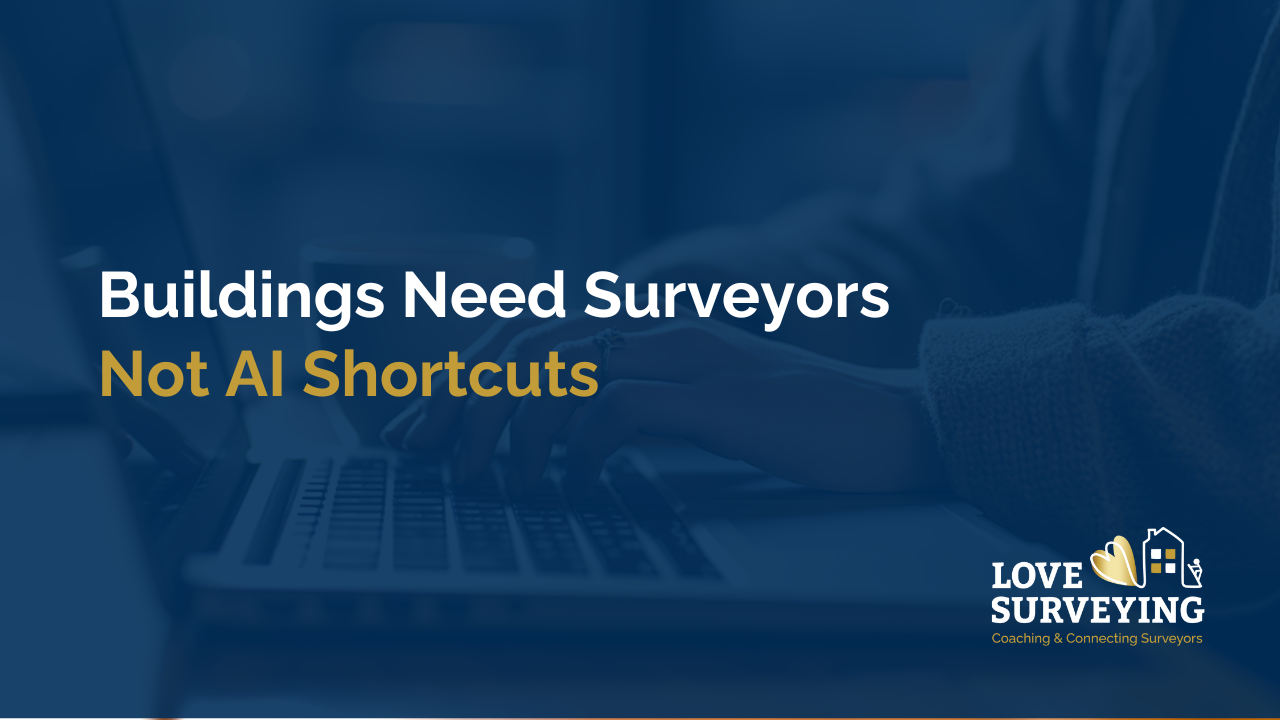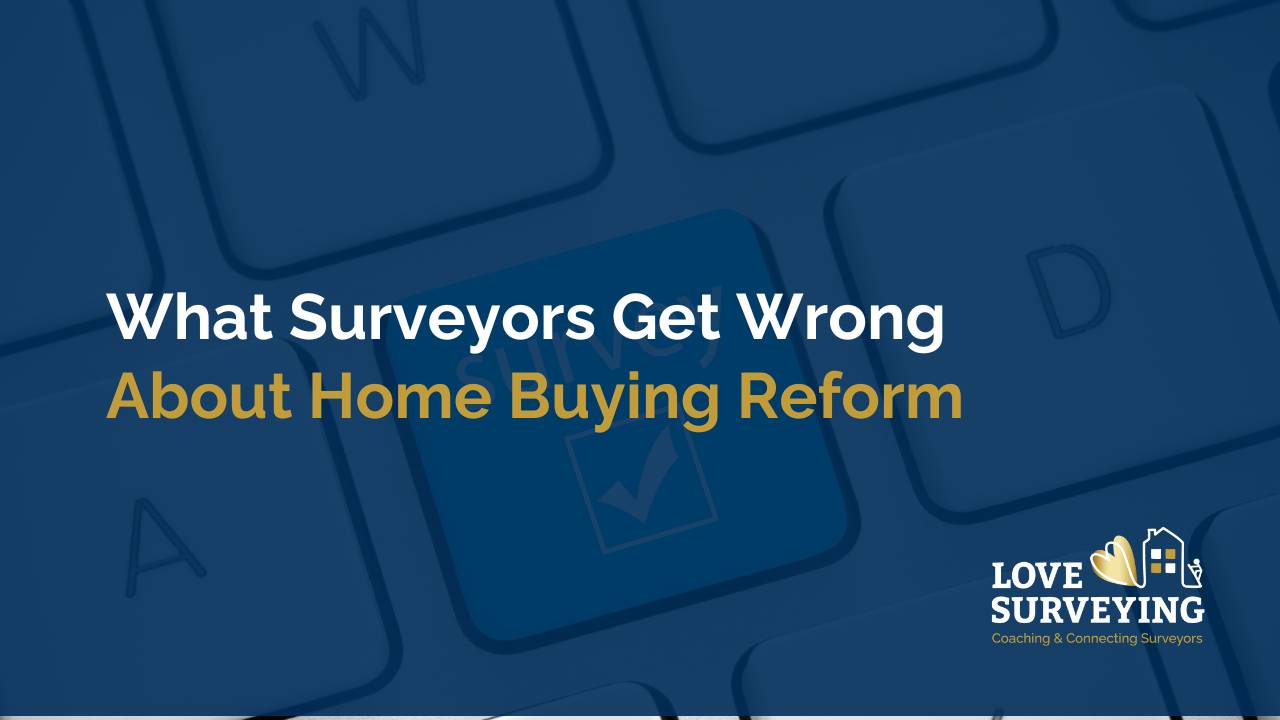What the RICS Home Survey Consultation Gets Right
Sep 08, 2025
The RICS Home Survey Standard consultation has caused quite a stir - and in my view, that’s a good thing. When surveyors talk openly, it shows we’re engaged, thinking critically, and genuinely care about how our profession is represented.
I know some surveyors feel overwhelmed by the proposed changes, while others feel defensive. That’s natural. Consultations are tricky to get right, and as surveyors, our instinct is to spot problems, highlight risks, and prove what isn’t there. But it’s just as important to recognise what’s working - and there’s a lot in this consultation that deserves credit.
Key positives in the Home Survey Standard consultation
- Practice alerts are being integrated
For years, surveyors have been sent RICS practice alerts about risks and claims. Seeing these being drawn into the draft standard is a significant step forward. It means lessons are being learned and shared more widely. - A move towards clearer language
Client confusion is one of the biggest triggers for complaints. While not perfect, the effort to use plainer, clearer wording is welcome. It sets the stage for better alignment between surveyors and home buyers. - A focus on consumer protection
Even if the consumer research isn’t yet as robust as it could be, the intent is clear: this standard is about protecting buyers and sellers and building trust in home survey reports. That’s vital for the long-term reputation of the surveying profession. - Consistency across survey practice
Different interpretations of “what’s in, what’s out” have long caused problems. A more unified approach will help reduce that postcode lottery of interpretation - giving both surveyors and consumers more confidence. - Respect for professional judgement
No standard can cover every situation. The recognition that surveyors need room to exercise judgement is encouraging. It values our expertise rather than boxing us in with tick-boxes. - Reference to accessibility
I may not fully agree with how accessibility has been set out, but it’s important that it is there. As an organisation that promotes inclusion, RICS should ensure accessibility comes through in its standards and the work we do. - Climate considerations
Referring to the “climate emergency” can feel political, but the reality is practical: more rainfall means bigger gutters, better drainage, and new approaches to risk. Recognising how climate affects homes is an essential part of making the standard future-ready. - Encouraging open debate
The fact that this consultation has sparked such lively discussion is itself positive. Engagement makes the final version stronger, more grounded, and more practical.
On being “too negative”
Some surveyors have expressed concern that by raising critical points, I might bring the consultation to a halt or slow its progress. That’s not my intention at all. My aim is the opposite - to help ensure the new RICS Home Survey Standard is workable, fair, and genuinely useful in practice.
Constructive challenge is part of how we improve. Spotting where things don’t quite fit is not about holding things back, but about helping the profession avoid problems later on. At the same time, it’s just as important to recognise the good foundations that are already there - and this consultation has them.
On transparency and working groups
There’s also been some misunderstanding about my involvement in the expert working groups. To be clear, I was not part of the conservation working group. The only reason my name appeared in connection with that area was because I raised concerns that the Home Survey Standard working group did not have visibility of the conservation and heritage assets group’s work.
This matters because it's thought around 35% of homes in the UK are over 100 years old. You simply can’t create a credible, practical home survey standard in a silo without considering how older and historic homes are surveyed. Highlighting that gap wasn’t about politics or titles - it was about ensuring the final standard reflects the real mix of properties surveyors deal with every day.
Looking ahead
This is not a fait accompli. The consultation is an opportunity for every surveyor to share their perspective, both positive and critical. The more balanced our feedback, the better chance we have of shaping a standard that works for surveyors in practice and delivers real value to consumers.
Debate can feel uncomfortable, but it’s healthy. It shows we care, it pushes us to think, and it strengthens the profession. If we keep sight of that, the Home Survey Standard has the potential to become not just another RICS document, but a framework that genuinely supports surveyors and protects the people who rely on us.
A Personal Note
These thoughts come from my experience of over 20 years in surveying and supporting both consumers and surveyors. They’re simply my perspective - shared to open up discussion and encourage more voices to feed into the consultation. If you have a view, please take a moment to respond - your input really does make a difference. This is the link to the consultation.
Enjoyed this article?
- You might also like: Have Your Say On The Home Survey Standard: A Guide for those working towards RICS Membership
- Find it useful? Please share it with friends or colleagues who might benefit.
- Want to support my work? Leave me a quick Google Review or Buy Me a Coffee ☕. Every little helps as a small business.





